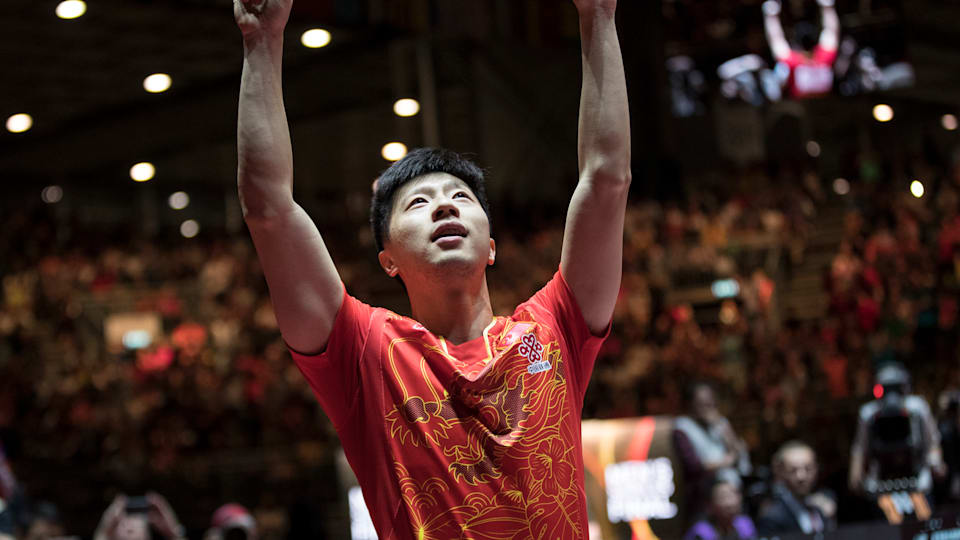Ma Long and Sun Yingsha win inaugural World Table Tennis event
The two world number threes defeated compatriots Wang Chuqin and Chen Xingtong in all-Chinese finals in Macao.

World and Olympic champion Ma Long and world number three Sun Yingsha have become the first World Table Tennis event champions after winning the inaugural exhibition showcase of the International Table Tennis Federation's new competition structure in Macao.
In this first running of a WTT event, multiple innovations were trialled, including a "game decider" at 10-10 in all games except the final game. The two finals were also best-of-nine instead of the usual best-of-seven.
Ma proved too strong for Wang, who going into this game actually led the head-to-head between the pair 2-1.
There is a reason "The Dragon" is considered one of the best to ever play the sport of table tennis, and he blew his young opponent away in racing to a 4-0 lead.
Wang squeaked the fifth game in a "game decider", 11-10, but normal service was restored in the sixth as Ma closed the game out to win 5-1 (11-5, 11-9, 11-4, 11-5, 10-11, 11-8).
Sun, the world number three and Women's World Cup silver medallist, used the "game decider" rule to her benefit in her final against Chen Xingtong.
Down 10-7 in the first game, she rolled off four points in a row to take the game 11-10. Chen, the world number 13, pushed hard in long rallies in the subsequent games but was constantly held at bay by Sun, the Buenos Aires 2018 Youth Olympic champion.
Although Chen managed to take the fourth game, Sun was no real match for her as the world number three ran out a 5-1 winner (11-10, 11-8, 11-6, 9-11, 11-6, 11-4).
New innovations
It remains to be seen exactly which of the new ideas make the final cut when WTT proper launches next season with three event "bubbles".
Some, like an expanded field of play, better broadcast dynamics in terms of the table colour and camera angles, in-arena sound and lighting effects, and a local DJ, look set to stay.
Changes to the game scoring, however, remain in the air. For example, in Macao, the top four seeds on each side played each other in their own mini-tournament on the first two days, with games being first to five points instead of first to 11. Whether something like this will be used for a competitive event, instead of an exhibition, is unclear.
One innovation praised by fans and commentators, however, was the ability for those top four seeds to pick their quarter-final opponents from the players who had come through the first two rounds.
It didn't always work out for the seeds – top-ranked Xu Xin chose Mattias Falck, only to be eliminated by him – but it certainly added a sense of intrigue and strategy to proceedings.
